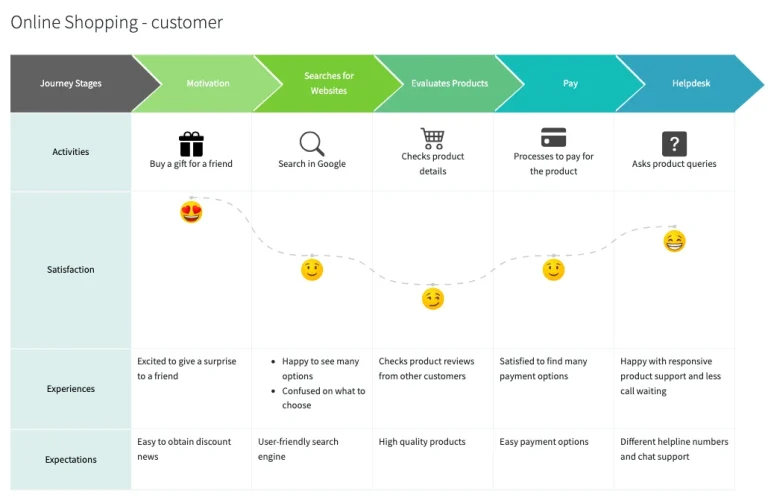
In the ever-evolving world of digital marketing, Search Engine Optimization (SEO) plays a crucial role in determining how well your website performs in search engine results. While on-page SEO focuses on optimizing elements directly on your website, off-page SEO is all about building your website’s authority and credibility through external activities. For beginners, understanding off-page SEO can be overwhelming, but with the right approach, it becomes an essential part of your online strategy.
This guide will walk you through the fundamentals of off-page SEO, its importance, and practical strategies that you can implement to improve your website’s visibility and rankings.
What is Off-Page SEO?
Off-page SEO refers to the techniques used to increase a website’s authority, relevance, and trustworthiness by improving its presence outside of its own domain. These activities are not directly controlled by the website owner but can significantly impact how search engines perceive your site.
Unlike on-page SEO, which involves optimizing content, meta tags, and internal links, off-page SEO revolves around building backlinks, engaging on social media, getting featured in directories, and gaining positive reviews. These actions signal to search engines that your website is valuable and trustworthy, which can lead to higher rankings in search results.
Why is Off-Page SEO Important?
Off-page SEO is a critical component of any successful SEO strategy because it helps establish your website as an authoritative source in your niche. Here are some reasons why it’s important:
1. Backlinks are a Major Ranking Factor
Google and other search engines use backlinks as one of the primary indicators of a website’s credibility. A high-quality backlink from a reputable site signals to search engines that your content is valuable and worth referencing.
2. Improves Brand Visibility
Engaging in off-page SEO activities like social media marketing and guest blogging increases your brand’s exposure. This helps build brand awareness and drives more traffic to your website.
3. Enhances User Trust
Positive reviews, mentions, and social engagement can boost user trust in your brand. When users see that others have had positive experiences with your business or content, they’re more likely to engage with your site.
4. Supports On-Page SEO Efforts
While on-page SEO ensures your website is optimized for search engines, off-page SEO complements these efforts by reinforcing your site’s authority. Together, they create a powerful SEO strategy.
Key Elements of Off-Page SEO
There are several key components that make up effective off-page SEO. Understanding each of these elements will help you develop a comprehensive strategy.
1. Backlink Building
Backlinks are one of the most important aspects of off-page SEO. They are hyperlinks from other websites that point to your site. Search engines view backlinks as votes of confidence, indicating that your content is valuable and relevant.
How to Build Backlinks:
- Guest Blogging: Write articles for other reputable websites and include a link back to your site.
- Broken Link Building: Identify broken links on other websites and reach out to the webmaster to suggest replacing them with a link to your content.
- Content Marketing: Create high-quality, original content that others want to link to.
- Partnerships: Collaborate with influencers, industry experts, or other businesses to gain backlinks.
2. Social Media Engagement

Social media platforms play a significant role in off-page SEO. While social signals (likes, shares, comments) may not directly affect search rankings, they contribute to brand visibility and drive traffic to your website.
Tips for Social Media Engagement:
- Post Regularly: Maintain an active presence on platforms like Facebook, Instagram, LinkedIn, and Twitter.
- Engage with Your Audience: Respond to comments, answer questions, and participate in discussions.
- Share Valuable Content: Post content that adds value to your audience, such as blog posts, videos, and infographics.
- Use Hashtags: Incorporate relevant hashtags to increase the visibility of your posts.
3. Online Directories and Listings
Listing your business in online directories can improve your local SEO and increase your chances of appearing in local search results. These listings often include your business name, address, phone number (NAP), and a link to your website.
Best Practices for Online Directories:
- Claim Your Profile: Ensure your business is listed on major directories like Google My Business, Yelp, and Bing Places.
- Optimize Your Listing: Add detailed information about your services, hours, and location.
- Maintain Consistency: Keep your NAP information consistent across all directories to avoid confusion.
4. Online Reviews and Ratings

Positive reviews and ratings from customers can significantly impact your website’s credibility and search rankings. Search engines consider user feedback as a signal of trustworthiness.
How to Encourage Reviews:
- Ask for Feedback: Politely request customers to leave reviews after a purchase or service.
- Respond to Reviews: Show appreciation for positive reviews and address any negative feedback professionally.
- Monitor Reviews: Use tools like Google Alerts or review monitoring software to track and respond to new reviews.
5. Brand Signals
Brand signals refer to mentions of your brand on third-party websites, social media, and other online platforms. These signals help build your brand’s reputation and authority.
Strategies for Building Brand Signals:
- Create Shareable Content: Develop content that others are likely to share, such as videos, infographics, and blogs.
- Collaborate with Influencers: Partner with influencers in your niche to expand your reach.
- Publish Press Releases: Announce new products, events, or achievements through press releases to gain media coverage.
Step-by-Step Guide to Off-Page SEO for Beginners
If you’re just starting out with off-page SEO, here’s a step-by-step approach to help you get started:
1. Identify Your Target Audience
Understand who your ideal customers are and where they spend their time online. This will help you focus your efforts on the most relevant platforms and strategies.
2. Build a Backlink Strategy
Start by identifying high-quality websites in your niche that could potentially link back to your content. Focus on creating valuable content that others will want to reference.
3. Engage on Social Media
Choose the social media platforms that align with your target audience. Post regularly, engage with your followers, and share content that adds value to their experience.
4. Claim and Optimize Local Listings
If you run a local business, claim your profile on Google My Business and other local directories. Make sure your NAP information is consistent and up-to-date.
5. Encourage Customer Reviews
Ask satisfied customers to leave reviews on your Google My Business profile and other review sites. Respond to both positive and negative reviews to show you care about customer feedback.
6. Create Shareable Content
Produce content that is informative, engaging, and easy to share. This could include blog posts, videos, infographics, and podcasts.
7. Monitor and Analyze Results
Use tools like Google Analytics and SEMrush to track your progress. Monitor your backlinks, social media engagement, and website traffic to see what’s working and what needs improvement.
Common Mistakes to Avoid in Off-Page SEO
While off-page SEO can be highly effective, there are several common mistakes that beginners should avoid:
1. Buying Low-Quality Backlinks
Purchasing backlinks from spammy or irrelevant websites can harm your SEO efforts and even result in penalties from search engines.
2. Ignoring NAP Consistency
Inconsistent NAP information across directories can confuse search engines and hurt your local SEO efforts.
3. Overlooking Social Media Engagement
Failing to engage with your audience on social media can reduce your brand’s visibility and limit the potential for organic growth.
4. Not Tracking Results
Without proper tracking, it’s difficult to determine the effectiveness of your off-page SEO efforts. Use analytics tools to measure your progress and adjust your strategy accordingly.
5. Focusing Only on Quantity Over Quality
While having many backlinks is beneficial, quality is more important. Focus on building relationships with reputable websites rather than chasing quantity.
Conclusion
Off-page SEO is a vital component of any successful digital marketing strategy. By building backlinks, engaging on social media, optimizing online directories, and encouraging customer reviews, you can enhance your website’s authority and improve its visibility in search results.
For beginners, the key is to start small, focus on quality over quantity, and consistently monitor your progress. With patience and persistence, you can achieve long-term success in the competitive world of SEO.
Remember, off-page SEO is not a one-time task—it requires ongoing effort and adaptation. Stay informed about the latest trends and best practices, and always aim to provide value to your audience.
By following the steps outlined in this guide, you’ll be well on your way to mastering off-page SEO and driving sustainable growth for your website.







